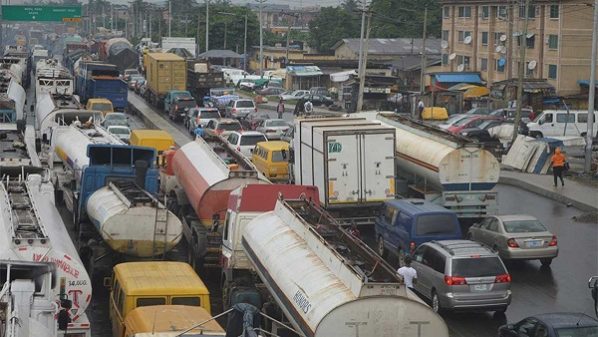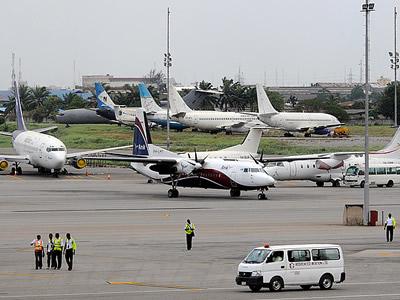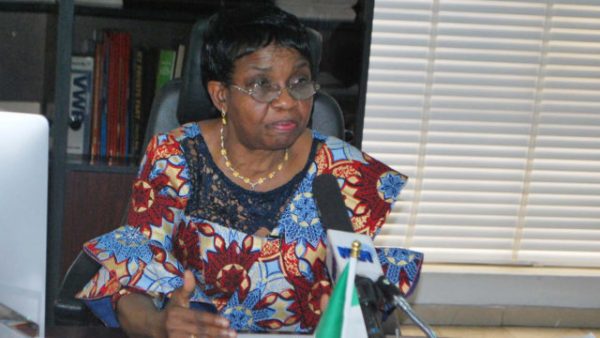NPA and Apapa Gridlock: Taking The Bulls By The Horn

By Oyeniyi Iwakun
The Apapa gridlock and its consequent effects on the residents and commuters is gradually becoming permanent part of their lifestyles on daily basis. This is even as various stakeholders and commentators have lamented the poor state of the road and the threats it pose to the nation’s economy. Meanwhile, the cries of the people seem to often fall on the deaf ears of government and other agencies saddled with the responsibility of ameliorating these challenges.
Although various causal factors have been attributed to the gridlock including bad roads, but notable among the reasons is the absence of empty container holding bays and trailer parks which has opened an avenue for undue extortion by shipping companies and terminal operators through exorbitant charges on demurrage.
The Nigeria Shippers Council (NSC) in 2017 made frantic efforts in ensuring the availability of trailer parks at various locations around Lagos and its neighbouring States to reduce the hardship posed by the indiscriminately parked trucks on the major roads leading to the ports and its environment but still couldn’t see the light of the day. It becomes more worrisome when the narratives have refused to change for many years.
Speaking on the issue, the Chairman, Association of Maritime Truck Owners (AMATO), Chief Remi Ogungbemi explained that the situation was under control prior the ports reforms. He posited that the gridlock wasn’t in existence in the era preceding port concession because there were enough spaces both within and outside the ports location for Trucks and Trailers to park and adequate provision was also in place for empty containers to be kept.
The Nigerian Ports Authority (NPA) who is the landlord of the ports is expected to play pivotal roles in finally putting to rest the challenge. Taking into cognizance the need to be up in performing this responsibility, NPA has rolled out several directives to this effect without any visible outcome.
For instance, around fourth quarter of 2017, there was a directive from the NPA management for all shipping companies to keep their empty containers off the road within seven days ultimatum. NPA also announced that it would commence the call-up system where only trucks that have businesses in the Ports at a particular moment would be allowed access to the roads. Surprisingly, after the deadline, the situation remained the same and no sanction was melted out to defaulters.
Again, the same order was rolled out at the first quarterly meeting of NPA and ports stakeholders held in Apapa early 2018. The NPA Managing Director, Hadiza Bala Usman while emphasizing on the seriousness of the directive referred to the sanctions melted out to Maesk line and Mediterranean Shipping Company the previous day on realizing that they had no holding bays. There were high expectations that things would experience a new turn until it dawned on observers that it was still business as usual. All threats of sanctions on racketeering and disobedience to NPA orders in any guise remained ceremonial.
The question now is who to blame. Do we say NPA doesn’t have the capability and capacity to enforce its laws? Are there things going on underground that aren’t open to the public? What would be the justification for these inconsistencies?
Amazingly, when quizzed by some journalists on the rationale behind the non-implementation or non-execution of the directives given to terminal operators and shipping companies who failed to provide holding bays for their empty containers, NPA was said to have allegedly denied giving a directive but claimed to have merely advised the concerned parties. If this is anything to go by, then it isn’t good enough for NPA.
It is now obvious that the Apapa gridlock has remained a major hindrance to seamless business transactions and movement of goods in and outside the ports because of NPA’s inability to stand on its feet and do the needful.
There is need for consistency in policy formulations and implementation if the bottlenecks at the ports would truly be removed.
It must be clearly understood that the syndicates and other operators benefiting from the hardship would do everything possible to ensure that the status quo remains. Hence, the need for NPA to be serious with every measures or orders rolled out and follows it up for optimum implementation.
It is understandable that there is need for leniency to allow friendly environment for investment but in a situation where greed and appetitive desires appears to override the interest and welfare of the masses, there is need for stiff actions and there shouldn’t be any sacred cow because the law is a respecter of no human if the Nation’s maritime industry must overcome its current challenges.







